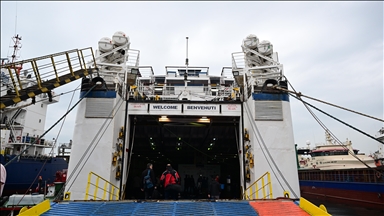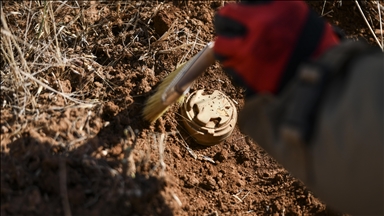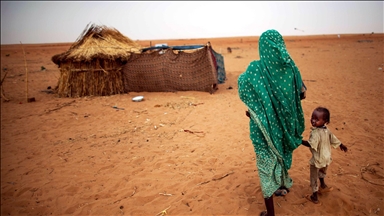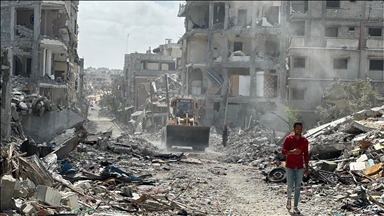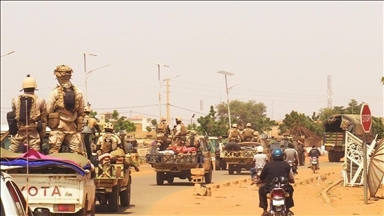UN seeks additional authorizations for Afghan women from Taliban
UN aid chief hopes bans on women's rights to be rescinded
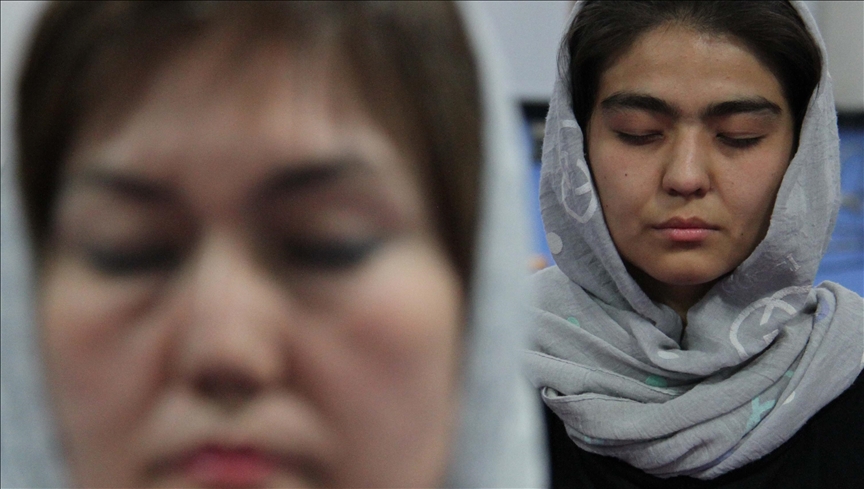 FILE PHOTO ( Haroon Sabawoon - Anadolu Agency )
FILE PHOTO ( Haroon Sabawoon - Anadolu Agency )
UNITED NATIONS
The UN and several international humanitarian agencies asked the Taliban, Afghanistan's de facto authorities, to expand exceptions for women to work in humanitarian, health and education sectors during a visit to the capital, Kabul.
UN humanitarian chief Martin Griffiths traveled to Kabul last week with a delegation including Janti Soeripto, president of Save the Children US, Sofia Sprechmann Sineiro, secretary general of Care International, and Omar Abdi, deputy executive director for programs at the United Nations Children’s Fund (UNICEF), to convince the Taliban to lift the ban on female aid workers.
The Taliban banned Afghan women from working at national and international non-governmental organizations (NGOs).
The recent ban put some programs on hold, sowing fears that the already dire humanitarian situation in Afghanistan will get worse.
Some 28 million people are in need of humanitarian aid in Afghanistan, a 350% hike in just five years, according to the UN.
''In addition to making clear our grave concern about the edict itself, we then also said, okay, if you're not rescinding the edict now, then we must expand these exceptions to cover all the aspects of humanitarian action. And it was, that was the agenda with which we met all those de facto Taliban leaders,'' Griffiths told reporters at UN headquarters following the visit.
''We expressed our opposition to the ban, hope for it to be rescinded, and in the meantime asked for it to be, further sectors to be granted these exceptions or authorizations for the role and the function of women.''
He said the Taliban asked the delegation to be patient and that guidelines are being developed by the Taliban authorities.
''Let's see if these guidelines do come through. Let's see if they are beneficial. Let's see what space there is for the essential and central role of women in our humanitarian operations. Everybody has opinions as to whether it's going to work or not,'' Griffiths said.
''Our view is that the message has clearly been delivered that women are central, essential workers in the humanitarian sector, in addition to having rights, and we need to see them back to work. And in that regard, we need to maintain humanitarian operations in the sectors already, health and education, but expand that to the others.''
The Taliban regime has recently moved to close universities to female students across the country until further notice and has barred girls from attending secondary school, restricted women and girls’ freedom of movement, excluded women from most areas of the workforce and banned women from using parks, gyms and public bath houses.
The Taliban's return to power in Afghanistan on Aug. 15, 2021 followed by the disruption of international financial assistance has left the worn-torn country in economic, humanitarian and human rights crises.
Women and girls have been deprived of their rights, including the right to education, and disappeared from public life under the Taliban.
Thousands of women have since lost their jobs or were forced to resign from government institutions and the private sector.
Girls have been prevented from attending middle and high schools. Many women have demanded that their rights be reinstated by taking to the streets, protesting and organizing campaigns.




